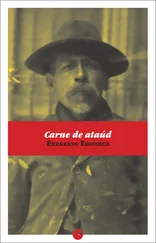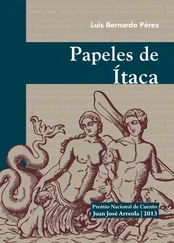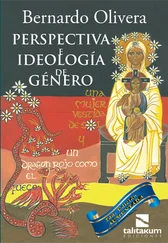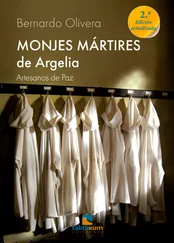Bernardo Atxaga - Obabakoak
Здесь есть возможность читать онлайн «Bernardo Atxaga - Obabakoak» весь текст электронной книги совершенно бесплатно (целиком полную версию без сокращений). В некоторых случаях можно слушать аудио, скачать через торрент в формате fb2 и присутствует краткое содержание. Год выпуска: 2010, Издательство: Graywolf Press, Жанр: Современная проза, на английском языке. Описание произведения, (предисловие) а так же отзывы посетителей доступны на портале библиотеки ЛибКат.
- Название:Obabakoak
- Автор:
- Издательство:Graywolf Press
- Жанр:
- Год:2010
- ISBN:нет данных
- Рейтинг книги:3 / 5. Голосов: 1
-
Избранное:Добавить в избранное
- Отзывы:
-
Ваша оценка:
- 60
- 1
- 2
- 3
- 4
- 5
Obabakoak: краткое содержание, описание и аннотация
Предлагаем к чтению аннотацию, описание, краткое содержание или предисловие (зависит от того, что написал сам автор книги «Obabakoak»). Если вы не нашли необходимую информацию о книге — напишите в комментариях, мы постараемся отыскать её.
Obabakoak
The Observer
Obabakoak — читать онлайн бесплатно полную книгу (весь текст) целиком
Ниже представлен текст книги, разбитый по страницам. Система сохранения места последней прочитанной страницы, позволяет с удобством читать онлайн бесплатно книгу «Obabakoak», без необходимости каждый раз заново искать на чём Вы остановились. Поставьте закладку, и сможете в любой момент перейти на страницу, на которой закончили чтение.
Интервал:
Закладка:
On the one hand, what they suggested to me fitted well with what I myself had observed. The music and the lights always lit, for example, or the studiedly “petite cocotte” look adopted by the adolescent girls of the house, as well as the elusive behavior of the women I’d seen on the balcony who — when it came to walking down to the bus stop on the main road — chose to take a long detour rather than go through the center of the village. But, on the other hand, when I looked in at their front door, it was always the same people I saw. There were a lot of people, it was true, but they were always the same ones. There was certainly not the coming and going of men one might expect in a brothel. It was clear that this was a very special family. What was less clear was whether their specialness was of the kind so firmly endorsed by my neighbor and by others like him.
I asked Daniel, the village gamekeeper, about it. He was a serious man and not in the least narrow-minded. Live and let live was his motto. I trusted his judgment and always accepted his invitations to join him for walks in the forest.
“Well, that’s certainly the reputation they’ve been given and they’re stuck with it. But this village is like that, always gossiping. If you listen carefully you can hear the constant buzz of people talking, usually talking ill of others. We’re very backward here. It’s not like in the city. In the city those girls would be no different from a lot of others. The fact that one got married when she was already pregnant and another after she’d had a baby, that’s all it amounts to, nothing more. But, of course, because they’re shepherds…”
That was the central issue, the fact that they were shepherds, and, as I was soon to realize, in that fact lay the origin of the calumny. Not in their behavior or their character, but in their condition as shepherds. What was said about them in Villamediana, was said about others in the region as a whole.
The clerk at the agency I rented the house from said to me once: “Well, I must say I think you’re wrong. You can’t go leaving your front door open in this day and age, especially when there are shepherds about.” I’d happened to mention that I tended not to lock my door. “They wait until there are gypsies around before they do any stealing. That’s why gypsies have got such a bad name. Because they get blamed for all the burglaries the shepherds commit.” Then, to moderate what he’d said, he added that he was, of course, speaking in general terms, they weren’t all thieves, it took all sorts, after all.
It certainly did, but — if one were to believe him or many of the others — the majority did have those bad tendencies, especially the ones who didn’t own the sheep they tended and worked as hired hands. They were the unsociable ones who would have their knives out at the least provocation. Well, what could you expect when dealing, as one was, with alcoholics.
In the end I came to understand the role the inhabitants of the happy house played in Villamediana. They’d become marginalized, their role was that played in other parts of the world by the sick, by blacks, or by people of a different sexual orientation. The fact is that every society, however small, always surrounds itself with a wall, an invisible one, but no less real for that and then tosses anything negative and foul-smelling into the area outside, like that wicked market gardener in the story who, when it came to getting rid of his weeds, always waited for cover of night and then made straight for his brother’s farm.
The shepherds were beyond the pale, on the other side of the wall, in the circle of the guilty. And, it should be said, they’ve probably always been there, in all times and in all places. When Calliope and her sisters spoke to Hesiod, they dismissed him with the words: “You rustic shepherd, shame on you.” And when Christianity, which began as the religion of a humble and marginalized people, described the birth of the baby Jesus, it placed at his side the shepherds from Bethlehem for exactly the same reasons it later placed Mary Magdalene at the foot of the cross.
I shared my thoughts with Daniel and took advantage of one of our walks through the forest to ask him how the shepherds felt about their position; if it was true, as people said, that the majority were ashamed of their profession.
“The blacks aren’t. The blacks tend to be very proud and if they can blacken their own name still further, they will,” he replied.
“Who are the blacks?” I asked, thinking perhaps it was the nickname given to one particular family.
“You mean you haven’t noticed there are white shepherds and black shepherds?” And he began listing all the shepherds I knew in the village, explaining which belonged to which category.
“Why, you’re right!” His classification seemed to me absolutely accurate.
Not content with simply listing the two groups, Daniel wanted to describe them too. He explained how the hair of some of the shepherds, usually the blue-eyed ones, would gradually become whiter and whiter and how their whole behavior would undergo a similar transformation: They would become prudent, considerate, as gentle as their looks. Others, though, became black as coal and could often be seen in the bar, drinking, carousing, ready to gamble away their money with anyone. In conclusion he said: “In fact we’re on our way to see two shepherds right now, one of whom, as you’ll see for yourself, is black and the other white.” And leaving the village behind us, we set off in the direction of one of the plateaus.
The two shepherds hadn’t been down to any village for a month. The black shepherd shouted a greeting to us when we were still some way off from the sheep pen and when we reached his side, he was there ready with a bottle of wine in his hand. He spoke in a sing-song voice and immediately started in on the tangled tale of some affair he’d had with a married woman, pausing only to let fly a curse or to throw a stone at the dog.
The white shepherd didn’t even come over to us. Seated on a stone wall, he was busy cleaning a sheepskin. When I went over to offer him some of his companion’s wine, he shook his head.
“Where are you from?” I asked.
“From around Segovia,” he replied in a very quiet voice. His eyes were pale blue, his eyebrows white as cotton wool.
“And what’s your name?” I asked, in the same friendly fashion, having told him mine.
“Gabriel,” he whispered. Then, with only a muttered good-bye, he got down from the wall and walked away.
A little later I noticed that wings — white wings — had sprouted from his back and that, borne up on them, he’d taken flight and lifted off into the air. But that may just have been an illusion brought on by the wine given me by his companion, the black shepherd.
3. To a village full of old people and with barely two hundred inhabitants, a stranger coming to stay is an instant novelty. They’re not accustomed to receiving people; on the contrary, the scene they’re most familiar with, the scene repeated year in, year out, is that of departure. Whole families have abandoned the village declaring that “it’s impossible to live in Villamediana.” And of course those who remain agree. They’ve stayed not because they wanted to, not because they value what they have, but because they’ve no other option. But then the normal course of events is reversed and a stranger, someone who obviously feels otherwise, arrives in their midst. He doesn’t appear to be ill or to have come there in search of a dryer climate. Neither does he seem to be from some museum in Madrid as happens now and again when people are sent to restore the statues in the church. No, this stranger has chosen the place because he likes it.
Читать дальшеИнтервал:
Закладка:
Похожие книги на «Obabakoak»
Представляем Вашему вниманию похожие книги на «Obabakoak» списком для выбора. Мы отобрали схожую по названию и смыслу литературу в надежде предоставить читателям больше вариантов отыскать новые, интересные, ещё непрочитанные произведения.
Обсуждение, отзывы о книге «Obabakoak» и просто собственные мнения читателей. Оставьте ваши комментарии, напишите, что Вы думаете о произведении, его смысле или главных героях. Укажите что конкретно понравилось, а что нет, и почему Вы так считаете.











